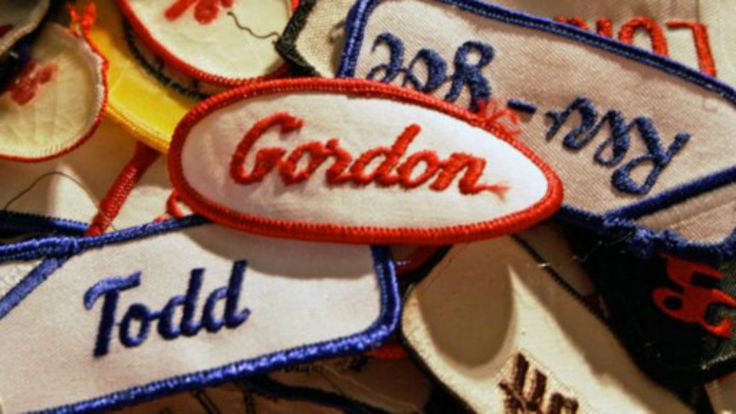我們為什麼會忘記別人的名字?
- 2015年 12月 10日
 GETTY
GETTY
一位名叫丹(Dan)的讀者問我:「剛見到別人時,我們為什麼會忘記他們的名字?我可以記住關於他們的各種其他細節,但卻完全記不住名字。即使是在經過了長期而深入的交流後,依然如此。這實在是令人尷尬。」
幸運的是,要回答這個問題,可以從記憶的本質說起。了解了這些知識後,便可通過一些方法避免你在社交場合遭遇這種尷尬——跟別人聊了一個小時卻仍然記不住他們的名字,的確是一件令人難堪的事情。
要了解背後的原因,就必須明白我們的記憶不是簡單的文件系統,不會將各種信息分門別類地儲存在不同的文件夾裏,然後用明亮的顏色給某個文件夾添加「名字」這樣一個標籤。
相反,我們的思維都是相互關聯的,通過互聯模式組合在一起。正因如此,我們才會白日做夢:你注意到自己閱讀的一本書上印著「巴黎」兩個字,而那個巴黎正是埃菲爾鐵塔的所在地,你的表妹瑪麗(Mary)去年夏天剛剛去過那裏,她喜歡當地的開心果冰淇淋。於是,我開始想像她是否在埃菲爾鐵塔上吃了一個開心果冰淇淋。類似的聯想還會不斷出現,每個事物都會相互關聯,但並沒有特定的邏輯,只是時間和地點有些巧合,還要配合你所掌握的信息以及信息對應的含義。
 GETTY
GETTY
但正因為存在這樣一個相互關聯的網絡,才使得我們可以根據答案猜出問題。答案:「埃菲爾鐵塔?」問題:「巴黎最著名的地標。」這正是記憶的有用之處,因為你可以很容易地實現內容與標籤的相互推導:「最上面的抽屜裏有什麼?」並不是個有趣的問題,但如果你想回答「我的鑰匙在哪裏?」,這個問題就變得很有吸引力。
記憶正是通過這種方式有目的地構建起來的,所以,現在應該可以明白我們為什麼會忘記別人的名字了。人類的記憶很奇妙,但能否記住某個信息,取決於我們將多少內容與新的信息關聯起來,而不是我們有多麼想記住這條信息。
當你第一次見到某人時,你會獲知他們的名字,但對於你的記憶而言,這或許只是一條孤立的信息,無法與你腦海中存儲的其他信息關聯起來,也無法與你後來了解的與之相關的信息建立聯繫。當你們交流一段時間之後,你可能會知道他們的工作、愛好、家庭或其他信息,這些內容都會與你的記憶關聯。試想,你的聊天對象是一個穿著藍色襯衫、喜歡釣魚的汽車銷售員,但他想放棄現在的工作,轉而銷售漁具。現在,如果你記住其中的一條信息(「汽車銷售員」),便可以順藤摸瓜記起其他信息(「想辭職的汽車銷售員」,「想辭職賣漁具」,「喜歡釣魚」等等)。問題在於,這個新朋友的名字並沒有進入整個記憶鏈,因為這是一條與其他對話內容毫不相關的孤立信息。
好在還有其他辦法可以強化這些聯繫,使之融入其他記憶。下面就來介紹一下,如何使用基本的記憶原理來記住別人的名字。
首先,你應該盡量重覆別人的名字。「練得越多,記得越牢」是永不過時的記憶法則。另外,當你使用某人的名字時,你也會將它與你說這個名字時的肢體行動聯繫起來,還可以與你記憶中的對話主題關聯。(「詹姆斯(James),你為什麼那麼喜歡釣魚?」)
第二,你應該嘗試將剛剛了解到的名字,與你已經掌握的信息聯繫起來。無論這種聯繫看起來有多傻,關鍵是通過這種聯繫來強化記憶。例如,這個人可能叫詹姆斯,而你高中的哥們恰好也叫詹姆斯——儘管這個詹姆斯穿著藍襯衣,而你高中的哥們只穿黑襯衣,從來不穿藍衣服。這種聯繫的確有點傻,但卻能幫助你強化記憶。
 GETTY
GETTY
抓住腦海中浮現的第一條信息,利用這條信息將某人的名字與我對此人的了解聯繫起來。
最後,你應該嘗試將他們的名字與其他與之有關的信息聯繫起來。如果是我,我會抓住腦海中浮現的第一條信息,利用這條信息將某人的名字與我對此人的了解聯繫起來。例如,詹姆斯有點像聖經的名字,你可能會想到《欽定版聖經》(King James bible)。詹姆斯的第一個字母是J,聖經裏被鯨魚吃掉的約拿(Jonah)的第一個字母也是J。而且這個詹姆斯喜歡釣魚,但我打賭他更喜歡抓魚,而不是被魚抓住。
無論你所建立的聯繫有多麼稀奇古怪,都沒有關係。你不必把這種聯繫告訴任何人。實際上,你最好不要告訴任何人,尤其是對你的新朋友!但這種聯繫卻有助於在你的記憶中創造一個相互交織的信息網絡,而當你需要向其他人介紹某人時,這個網絡就可以避免你忘記此人的名字。
如果你懷疑上文的方法,現在就可以做個測試。我在這篇文章中提到了3個名字,我打賭你肯定能記住詹姆斯,而且不會把他跟約拿搞混。你大概也能記住我的表妹瑪麗(至少也能記住她喜歡哪種冰淇淋)。但你能記住那個向我提問的讀者叫什麼名字嗎?這是我在整篇文章中唯一一個沒有與其他信息建立聯繫的名字。正因如此,我才認為你記不住這位讀者的名字。
請訪問 BBC Future 閱讀 英文原文。
Forgetting names is one of our memory’s most common failures – but there are ways to make them stick, says psychologist Tom Stafford.
A reader, Dan, asks "Why do we forget people's names when we first meet them? I can remember all kinds of other details about a person but completely forget their name. Even after a lengthy, in-depth conversation. It's really embarrassing.”
Fortunately the answer involves learning something fundamental about thenature of memory. It also provides a solution that can help you to avoid the embarrassing social situation of having spoken to someone for an hour, only to have forgotten their name.
of memory. It also provides a solution that can help you to avoid the embarrassing social situation of having spoken to someone for an hour, only to have forgotten their name.
 of memory. It also provides a solution that can help you to avoid the embarrassing social situation of having spoken to someone for an hour, only to have forgotten their name.
of memory. It also provides a solution that can help you to avoid the embarrassing social situation of having spoken to someone for an hour, only to have forgotten their name.
To know why this happens you have to recognise that our memories aren't a simple filing system, with separate folders for each kind of information and a really brightly coloured folder labelled "Names".
Our minds are associative. They are built out of patterns of interconnected information
Rather, our minds are associative. They are built out of patterns of interconnected information. This is why we daydream: you notice that thebook you're reading was printed in Paris, and that Paris is home to the Eiffel Tower, that your cousin Mary visited last summer, and Mary loves pistachio ice-cream. Say, I wonder if she ate a pistachio ice cream while up the Tower? It goes on and on like that, each item connected to every other, not by logic but by coincidence of time, place, how you learnt the information and what it means.
you're reading was printed in Paris, and that Paris is home to the Eiffel Tower, that your cousin Mary visited last summer, and Mary loves pistachio ice-cream. Say, I wonder if she ate a pistachio ice cream while up the Tower? It goes on and on like that, each item connected to every other, not by logic but by coincidence of time, place, how you learnt the information and what it means.
 you're reading was printed in Paris, and that Paris is home to the Eiffel Tower, that your cousin Mary visited last summer, and Mary loves pistachio ice-cream. Say, I wonder if she ate a pistachio ice cream while up the Tower? It goes on and on like that, each item connected to every other, not by logic but by coincidence of time, place, how you learnt the information and what it means.
you're reading was printed in Paris, and that Paris is home to the Eiffel Tower, that your cousin Mary visited last summer, and Mary loves pistachio ice-cream. Say, I wonder if she ate a pistachio ice cream while up the Tower? It goes on and on like that, each item connected to every other, not by logic but by coincidence of time, place, how you learnt the information and what it means.
The same associative network means you can guess a question from the answer. Answer: "Eiffel Tower?" Question: “Paris's most famous landmark.” This makes memory useful, because you can often go as easily from the content to the label as vice versa: "what is in thetop drawer?" isn't a very interesting question, but it becomes so when you want the answer "where are my keys?".
drawer?" isn't a very interesting question, but it becomes so when you want the answer "where are my keys?".
 drawer?" isn't a very interesting question, but it becomes so when you want the answer "where are my keys?".
drawer?" isn't a very interesting question, but it becomes so when you want the answer "where are my keys?".
So memory is built like this on purpose, and now we can see the reason why we forget names. Our memories are amazing, but they respond to how many associations we make with new information, not with how badly we want to remember it.
The trouble is that your new friend's name simply a piece of arbitrary information that you didn’t connect to anything else about the conversation
When you meet someone for the first time you learn their name, but for your memory it is probably an arbitrary piece of information unconnected to anything else you know, and unconnected to all the other things you later learn about them. After your conversation, in which you probably learn about their job, and their hobbies, and their family or whatever, all this information becomes linked in your memory. Imagine you are talking to a guy with a blueshirt who likes fishing and works selling cars, but would rather give it up to sell fishing gear. Now if you can remember one bit of information ("sell cars") you can follow the chain to the others ("sells cars but wants to give it up", "wants to give it up to sell fishing gear", "loves fishing" and so on). The trouble is that your new friend's name doesn't get a look in because it is simply a piece of arbitrary information you didn’t connect to anything else about the conversation.
who likes fishing and works selling cars, but would rather give it up to sell fishing gear. Now if you can remember one bit of information ("sell cars") you can follow the chain to the others ("sells cars but wants to give it up", "wants to give it up to sell fishing gear", "loves fishing" and so on). The trouble is that your new friend's name doesn't get a look in because it is simply a piece of arbitrary information you didn’t connect to anything else about the conversation.
 who likes fishing and works selling cars, but would rather give it up to sell fishing gear. Now if you can remember one bit of information ("sell cars") you can follow the chain to the others ("sells cars but wants to give it up", "wants to give it up to sell fishing gear", "loves fishing" and so on). The trouble is that your new friend's name doesn't get a look in because it is simply a piece of arbitrary information you didn’t connect to anything else about the conversation.
who likes fishing and works selling cars, but would rather give it up to sell fishing gear. Now if you can remember one bit of information ("sell cars") you can follow the chain to the others ("sells cars but wants to give it up", "wants to give it up to sell fishing gear", "loves fishing" and so on). The trouble is that your new friend's name doesn't get a look in because it is simply a piece of arbitrary information you didn’t connect to anything else about the conversation.
Fortunately, there are ways to strengthen those links so it does become entrenched with the other memories. Here's how to remember the name, using some basic principles of memory.
More quick fixes for a memory boost
If you find Tom Stafford's tips to remember names useful, you may enjoy these quick life hacks to supercharge your brain:
First, you should repeat any name said to you. Practice is one of the golden rules of learning: more practice makes stronger memories. In addition, when you use someone's name you are linking it to yourself, in the physical act of saying it, but also to the current topic of the conversation in your memory ("So, James, just what is it about fishing that makes you love it so much?").
Second, you should try to link the name you have just learnt to something you already know. It doesn't matter if the link is completely silly, it is justimportant that you find some connection to help the name stick in memory. For example, maybe the guy is called James, and your high school buddy was called James, and although this guy is wearing a blue shirt, high school James only ever wore black, so he'd never wear blue. It's a silly made up association, but it can help you remember.
that you find some connection to help the name stick in memory. For example, maybe the guy is called James, and your high school buddy was called James, and although this guy is wearing a blue shirt, high school James only ever wore black, so he'd never wear blue. It's a silly made up association, but it can help you remember.
 that you find some connection to help the name stick in memory. For example, maybe the guy is called James, and your high school buddy was called James, and although this guy is wearing a blue shirt, high school James only ever wore black, so he'd never wear blue. It's a silly made up association, but it can help you remember.
that you find some connection to help the name stick in memory. For example, maybe the guy is called James, and your high school buddy was called James, and although this guy is wearing a blue shirt, high school James only ever wore black, so he'd never wear blue. It's a silly made up association, but it can help you remember.Grab the first thing to come to mind to bridge between the name and something I've learnt about them.
Finally, you need to try to link their name to something else about them. If it was me I'd grab the first thing to come to mind to bridge between the name and something I've learnt about them. For example, James is a sort of biblical name, you get the King James bible after all, and James begins with J, just like Jonah in the bible who was swallowed by the whale, and this James likes fishing, but I bet he prefers catching them to being caught by them.
It doesn't matter if the links you make are outlandish or weird. You don't have to tell anyone. In fact, probably it is best if you don't tell anyone, especially your new friend! But the links will help create a web of association in your memory, and that web will stop their name falling out of your mind when it is time to introduce them to someone else.
And if you're sceptical, try this quick test. I've mentioned three names during this article. I bet you can remember James, who isn't Jonah. And probably you can remember cousin Mary (or at least what kind of ice cream she likes). But you can you remember the name of the reader who asked the question? That's the only one I introduced without elaborating some connections around the name, and that's why I'll bet it is the only one you've forgotten.
If you have an everyday psychological phenomenon you’d like to see written about in these columns please get in touch with @tomstafford on Twitter, or ideas@idiolect.org.uk.


沒有留言:
張貼留言